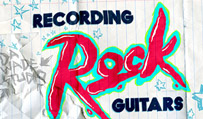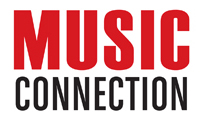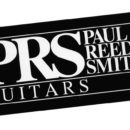As a working artist, avidly read blogger and best-selling author, Ari Herstand knows of what he speaks. By actually doing the things he writes about—creating original music, booking his own tours, making videos and utilizing all forms of social media—he has come to understand how artists can take command of their career and make smart, successful moves. In the following feast of proven, practical tips and music industry advice (excerpted from his new book How to Make It in the New Music Business) Herstand shares his hard-won knowledge with you:
1. Market Research
How do you know if you suck or not? You’re biased. So is your mom and your friends. Your friends aren’t going to tell you if they hate your music. They will come to your shows to support you. To make sure your music is ready for prime time, you need some unbiased opinions. You can submit to industry experts, influencers and curators on Fluence. Fluence allows you to pay people who are difficult to reach to listen to your song or watch your video. Most “curators” (as they’re called on the platform) charge a few dollars a minute. If you’re asking for feedback, prepare for it to be brutally honest. I’m a curator on Fluence and I typically write five-to-ten-paragraph critiques of songs submitted to me. Eighty percent of the stuff I receive is not very good; 15% is decent, but not great; and 5% is so great that I have to share it (if it’s released) and help the artist make connections.
But Fluence can get quite pricey. To hit the general public, you can use Audiokite. You basically pay about $20 to get 100 people to listen and rate your song. This is a great way to help decide which demos should make the album or which master should be your single. Use my affiliate code AK-ARISTAKE for 30% off your report. You can filter by genre (so folk lovers aren’t rating your heavy metal song).
ReverbNation has a similar program called Crowd Review, and TuneCore has Fan Reviews. SoundOut also has a very similar standalone product worth checking out. Then there’s Music Xray which specializes in submitting your music to gatekeepers (for a fee), but also offers Diagnostics. For $10, five “Music Industry Professionals” will rate your song on five criteria: Composition, Production, Arrangement,
Performance and Hit Potential.
Use one of those platforms to test out your song before it’s released.
2. Register Your Publishing
There are a ton of royalties out there. Kobalt estimates there are 900,000 distinct royalty payments for a single recording. So, to make sure you grab as many of those as possible, you have to register your music in all the appropriate places and sign up with an admin publishing company like SongTrust, TuneCore Publishing, Audiam or CD Baby Pro.
3. Register Every Song with a PRO
In America, the three PRO’s (Performing Rights Organizations) are ASCAP, BMI and SESAC. In Canada the sole PRO is SOCAN. Most admin publishing companies will register your songs with the PRO of your choosing so you don’t have to worry about taking this step once you sign up for an admin pub company.
4. Register with SoundExchange
SoundExchange is how you get paid for Pandora and SiriusXM (and all other digital radio) plays. Make sure to register an account and submit your catalog.
5. Get on AllMusic.com and Discogs
AllMusic is the most inclusive credits database in existence. Discogs is a close second. Why Spotify or Apple hasn’t integrated this info into their system is beyond me. Your music should be registered on AllMusic.com and Discogs so people can find out who played the violin on track 3 and who cowrote track 7, because most people won’t ever see your physical liner notes. To get registered on AllMusic, go to allmusic.com/product-submissions and follow the instructions. For Discogs, you can submit the info directly through the site (Discogs.com).
6. Register the Copyrights
You can currently register all of your songs at once for $55 with the U.S. Copyright Office. You can do everything at Copyright.gov. Just be extra careful with this, because if you file the applications incorrectly and you later have to file a lawsuit against someone, the court may say that your registration is invalid. The safest bet is to hire an entertainment or copyright attorney to do this for you so you don’t screw it up!
7. Register for YouTube and SoundCloud Revenue
You are going to be putting all of your music up on YouTube, so you want to collect all of those royalties. Pick a YouTube and SoundCloud collections company such as Repost Network, Audiam, InDMusic or AdRev. Or, better yet, your distribution company will be able to collect these royalties for you. CD Baby, DistroKid and TuneCore (among others) have this as an opt-in add-on. I recommend just keeping everything under one roof and having your distribution company collect these royalties for you. (Many of them actually outsource to the aforementioned third-party YouTube/SoundCloud collections companies anyway.)














